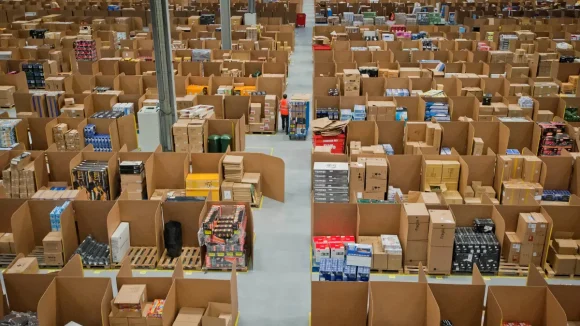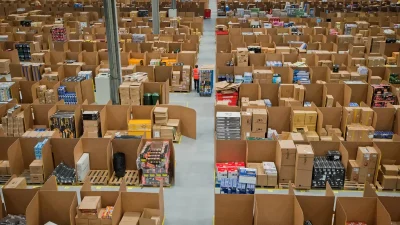In a landmark move towards a more sustainable future, the European Parliament adopted groundbreaking measures to reduce packaging waste and boost the circular economy.
The new regulation sets ambitious targets for packaging reduction, reuse, and recycling. These new measures will tackle the ever-growing waste problem in the region, where each person generates a whopping 190kg of packaging waste every year.
If swift action isn’t taken, this figure will increase to 209 kg within the next six years.
New EU packaging rules
Parliament adopted the new measures on 24 April after it was approved with 476 votes in favor, 129 votes against the initiative, and 24 abstentions. The council has provisionally agreed upon the rules.
Renew Europe Group’s vice chair, Frédérique Ries said the EU is setting targets to reduce packaging “for the first time in environmental law.” She said it will also benefit consumers’ health: “The ban on forever chemicals in food packaging is a great victory for the health of European consumers.”
Parliament cited research from 2018, showing that packaging was an “ever-increasing source of waste,” which increased from 66 million tons in 2009 to 84 million tons in 2021. In addition, each European generated 188.7kg of packaging waste in 2021.
Here’s what the EU plans to do about it.
EU to ban single-use plastics
Single-use packaging – specifically those used for unprocessed fresh fruit, vegetables, and beverages – will be banned, effective 1 January 2030. Carrier bags below 15 microns will be banned, as well as individual portions of condiments, sauces, creamer, sugar, etc.
“Forever chemicals” (per- and polyfluorinated alkyl substances or PFASs) are included in this clause. These chemicals are widely used in various industrial and consumer products but may result in adverse health effects, such as certain cancers, decreased fertility, and immune system problems.
They are referred to as “forever chemicals” because they are resistant to degradation and can remain in the environment or the human body for a very long time. PFASs are found in:
- Certain types of food packaging.
- Stain-resistant fabrics.
- Non-stick cookware.
- Firefighting foams.
Even if you aren’t directly exposed to PFASs, chances are it’s already in your blood. A report by the Centers for Disease Control and Prevention found PFAs in the blood of 97% of Americans.
Reuse and refill options
The EU Parliament also encourages reuse and refill options for consumers, specifically alcoholic and non-alcoholic beverage packaging.
Businesses must encourage customers to bring their own containers for beverages and takeaways. By 2030, businesses should aim to have at least 10% of their products available in packaging that can be reused multiple times, at which point single-use plastic will be banned.
How can businesses adopt sustainable packaging? There are several starting points:
- Introduce refillable containers for takeouts, drinks, cleaning products, etc.
- Implement a deposit-return scheme when consumers return packaging items like glass bottles and boxes.
- Offer bulk options for cleaning products, grains, and other non-perishable goods.
- Rethink product design to make it more suitable for reuse, like collapsible designs.
- Educate customers about the benefits of reusable packaging items.
Recycling and waste collection
Under the new law, all packaging materials will be subject to strict recyclable criteria, except for lightweight wood, cork, textile, rubber, ceramic, porcelain, and wax.
How? Press officer Dana Popp says this will include “minimum recycled content targets for plastic packaging and minimum recycling targets by weight of packaging waste. By 2029, 90% of single-use plastic and metal beverage containers up to three liters will have to be collected separately.”
Many companies have already taken the first steps to reduce packaging waste. Amazon has made a U-turn around its packaging strategy in June 2023 by reducing single-use plastic packaging by 12%. Meanwhile, Uber switched to eco-friendly delivery bags.
NOW READ: Uber Eats innovates with eco-friendly delivery bags
About the author
Cheryl has contributed to various international publications, with a fervor for data and technology. She explores the intersection of emerging tech trends with logistics, focusing on how digital innovations are reshaping industries on a global scale. When she's not dissecting the latest developments in AI-driven innovation and digital solutions, Cheryl can be found gaming, kickboxing, or navigating the novel niches of consumer gadgetry.











